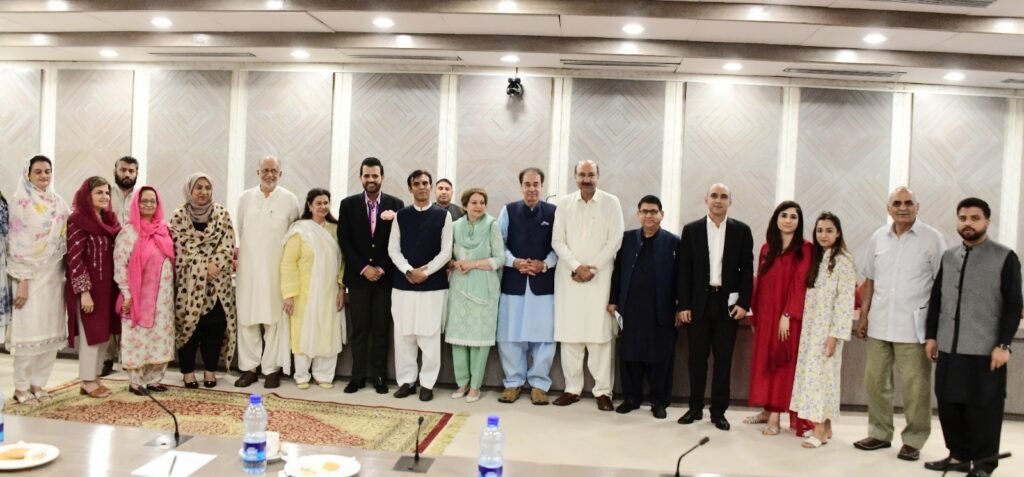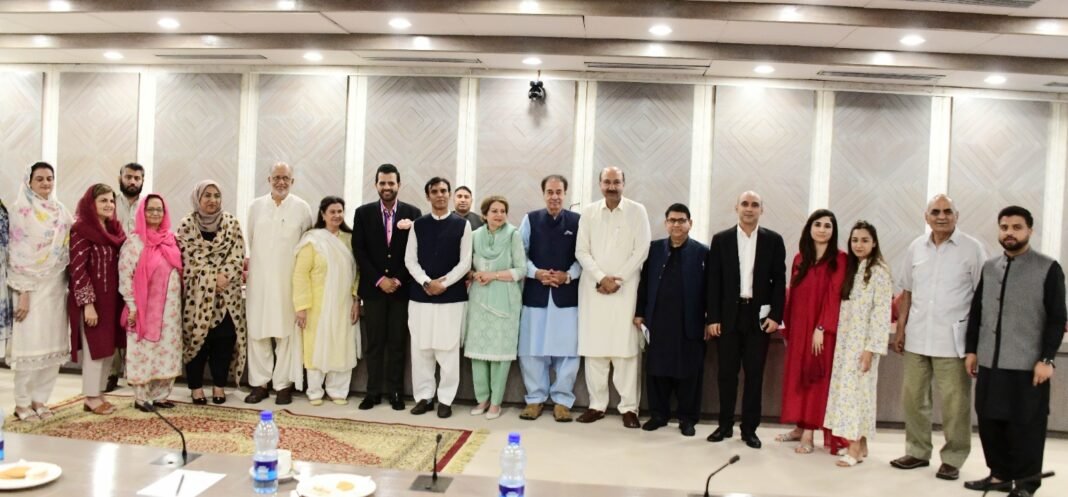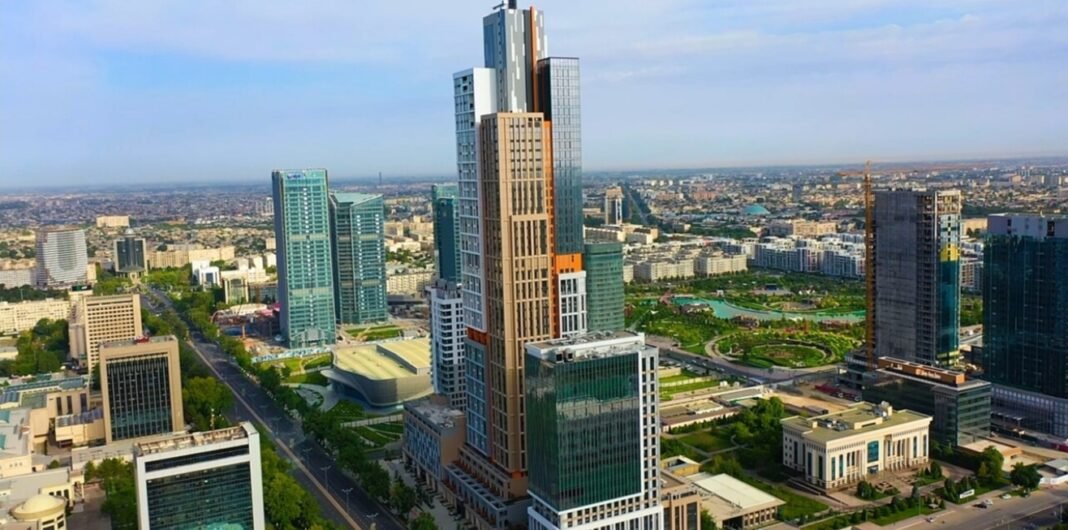
Islamabad ; The Parliamentary Taskforce on Sustainable Development Goals (SDGs), under the leadership of its Convenor, Ms. Shaista Pervaiz Malik, MNA, organized a high-level briefing session titled “Sustainable Development Goals in Focus: A Critical Post-Budget Analysis” at Parliament House. The session was held to facilitate parliamentarians in analyzing the Federal Budget 2025–26 through the lens of SDG commitments and to prepare for meaningful participation in the upcoming Budget Debate during the National Assembly session. The session witnessed participation from Minister of State for Law & Justice, Mr. Aqeel Malik, Parliamentary Secretaries, MNAs and economic experts.
Ms. Shaista Pervaiz Malik, in her opening remarks, appreciated the efforts of the incumbent and former members of the Taskforce and acknowledged the valuable contributions of her predecessors. She expressed gratitude to all distinguished participants for their active engagement and insights. The budget briefing was presented by Dr. Ali Salman, Executive Director of PRIME Institute and Dr. Abid Qayyum Sulheri, Executive Director of the Sustainable Development Policy Institute (SDPI).
Throughout the session, participating parliamentarians offered valuable recommendations and raised pressing concerns. Ms. Asia Naz Tanoli, MNA, highlighted major socio-economic challenges including school drop-out rates, inadequate teacher training, and the spread of diseases such as polio, diabetes, malaria, and dengue. She emphasized the role of the Parliamentary Taskforce on SDGs in raising awareness and mobilizing action, Ms. Shaista Pervaiz Malik endorsed her suggestion and assured to promote awareness using electronic, digital, and print media.
Ms. Romina Khursheed Alam, Coordinator to the Prime Minister on Climate Change and Environmental Coordination and former Convenor of the Taskforce, expressed concern over taxation on dairy products, arguing that such essential items should not be taxed as they constitute basic necessities. Ms. Zahra Wadood Fatemi, MNA, called for public awareness campaigns and higher taxation on artificially produced juices and canned foods due to their adverse health impacts, including increasing rates of obesity and other health issues.
Ms. Rana Ansar, Parliamentary Secretary, stressed the enforcement of minimum wage laws, particularly in the private sector. She advocated enhancing transparency in the Benazir Income Support Programme (BISP) and integrating skills-based training for women to support cottage industries. She also stressed on allocating budget for addressing mental health issues on which the Convenor apprised her of the on-going measures being taken to address this concern.
Dr. Shahida Rehmani, MNA, Secretary of the Women’s Parliamentary Caucus, voiced concern over the impact of increased taxation on online entrepreneurs & workers , noting that women are disproportionately affected. She also stressed the need for allocating development funds to women parliamentarians on reserved seats. Ms. Sabheen Ghoury, Parliamentary Secretary, emphasized the importance of effectively utilizing BISP for skill-based training and the promotion of small and medium enterprises (SMEs), especially in light of its enhanced allocation in the Federal Budget 2025–26. Syed Hafeez Uddin, Chairperson of the Standing Committee on Industries & Production, warned of the growing poverty levels and called for transforming BISP into a more robust poverty alleviation tool.
Syed Ali Qasim Gillani, MNA, reiterated that BISP is not just a cash transfer program but a comprehensive social protection framework. He commended the Benazir Nashonuma project and informed participants about measures underway to improve transparency, calling BISP a “gold standard” initiative with no alternative. Mr. Muhammad Aslam Ghumman, MNA, expressed concern over the limited allocations for health, education, and agriculture sectors, and urged the government to provide compensation and relief to farmers.
Ms. Sharmila Sahiba Faruqui Hashaam, MNA, appreciated the Convenor for organizing the session and commended the budgetary allocations for social protection and poverty alleviation under SDG 1 (No Poverty). She emphasized the need for increased development spending in alignment with SDGs 9 (Industry, Innovation, and Infrastructure) and 11 (Sustainable Cities and Communities). Ms. Shaista Pervaiz Malik and Mr. Riaz Fatyana, former Convenor of the Taskforce, jointly highlighted the critical issue of lapsing funds allocated for SDG-related activities within ministries. They stressed that preventing these lapses is essential to achieving all 17 SDGs by 2030.
The session concluded with Ms. Shaista Pervaiz Malik extending her thanks to all attendees for their meaningful input. Participants, in turn, thanked the Convenor for hosting a timely and impactful session that enabled a deeper examination of the Federal Budget 2025–26 from an SDG perspective. A group photograph was taken at the end of the session for institutional memory.
Sohail Majeed is a Special Correspondent at The Diplomatic Insight. He has twelve plus years of experience in journalism & reporting. He covers International Affairs, Diplomacy, UN, Sports, Climate Change, Economy, Technology, and Health.






![logo-1[1]](https://globalnewspakistan.com/wp-content/uploads/2025/01/logo-11-e1737618310315-300x187.png)